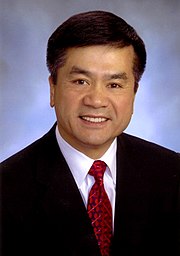Early-stage New York City startups are about to get some tender loving care and it's got nothing to do with Valentine's Day. As highlighted in Jason Calacanis' blog seed-stage investment group NYC Seed just launched an eight week incubator program where ten lucky companies will gain from startup mentorship, much-needed space and modest funding.
Led by NYC Seed's Managing Director Owen Davis, NYC Seedstart is a joint effort between NYC Seed, Contour Venture Partners, IA Ventures, Polaris Ventures and RR Ventures.
innovation DAILY
Here we highlight selected innovation related articles from around the world on a daily basis. These articles related to innovation and funding for innovative companies, and best practices for innovation based economic development.
Webcast invitation: Launch of PwC's 13th Annual Global CEO
Click here to pre-register for our press conference, streamed live from The World Economic Forum at Davos, on Tuesday, 26 January at 19:00 (7 p.m.) CET / 1 p.m. EST.
PricewaterhouseCoopers' Global Chairman Dennis Nally will be presenting findings from the 13th Annual Global CEO Survey. Entitled "Setting a smarter course for growth", the Survey looks at what measures CEOs are taking in response to the recession, how they view the post-crisis business environment, and what changes they are making to adapt their organisations. We surveyed 1,198 business leaders from around the globe from September to November 2009 and conducted further in-depth interviews with 27 CEOs from 17 countries.
Innovation inspired by nature
After 3.8 billion years of research and development, nature knows a thing or two about good design. But it's only recently that industry has started to pay attention.
Biomimicry looks closely at design solutions in the natural world and adapts them for human use. Although these man-made products look like replicas of their natural models, the process is more than a slavish copying of form. "It's about consulting the natural world for advice," says Janine Benyus, author of Biomimicry: Innovation Inspired by Nature. "We find the champion adaptors for a particular function; then we abstract that design principle and apply it."
Building an entrepreneurial ecosystem: what does success look like?
The shared goal of many individuals who read this blog is to “create a robust, sustainable entrepreneurial and innovation ecosystem.” But, what does that mean? Success is difficult to attain when you don’t know when you have attained it. So, this post is really about making this vision into something that is tangible.
In my [Tom Chapman] job as the Director of Entrepreneurship and Innovation at the Greater Omaha Chamber of Commerce, I often speak regarding the five pillars of an ecosystem – human capital, financial capital, metrics / deal flow, community and infrastructure. Here are some of the metrics the Chamber uses to gauge changes in those areas.
10 Signs That Innovation Will Fail
What are the signs that innovation in a company is set up to fail? It would be great to have a checklist, but unfortunately innovation is too complicated and company-specific to employ a standard checklist for this.
However, we can share our insights on this and help each other become better at spotting the signs of failure.
Thus I [Stefan Lindegaard] have listed (in a non-prioritized order) the red flags I look for when I talk with executives and innovation leaders trying to get an understanding of their corporate innovation capabilities. What do you think and what can you add?
Why do entrepreneurs flock to loudmouths as mentors?
I’m fortunate that I [Will Herman] get to work with many startups, both independently and with TechStars where I’m a mentor. There is no better way to learn than through teaching (learning is the most fun you can have, at least for a sustained period) and there are few better students than entrepreneurs.superstar
Good entrepreneurs always want to know why they should do something and not just what they should do. They test, challenge and refuse to take anything for granted. They’re highly motivated, smart and understand success is not about them as an individual, but about the team they can build. And they strive not only to make their first venture a success but also to become strong, solid leaders and managers that can build many great companies.
To Understand Angel Investing, Watch TV
Raising money from business angels is difficult. Few people are willing to invest their money in someone else's startup and fewer businesses have the right characteristics to be financed through an external capital raise.
Still, people raise money from business angels all the time—not a lot of entrepreneurs, mind you, but enough to indicate patterns that account for who obtains angel financing and who does not.
These patterns have led a lot of people, including me, to write books and articles about how to raise money from business angels.
Interactive Timeline: A Decade Of Start-Ups & Venture Capital
In March we celebrated the 10-year anniversary of VentureWire with an interactive timeline that depicted the major headlines of the previous 10 years in venture capital - from the birth of Pets.com to the expansion of Twitter.
Today our blog, run by VentureWire editors and reporters, turns one. So in honor of this birthday, we’ve updated the timeline to include news of the past year, and by extension, the past decade.
You can access the timeline below by using your mouse to scroll left and right, and by clicking on an event to read more about it. Please read the instructions below for a better viewing experience. We hope you enjoy this travel through time.
GSK Announces 'Open Innovation' Strategy to Help Deliver New and Better Medicines for People Living in the World's Poorest Countries
 PHILADELPHIA and LONDON, Jan. 20 /PRNewswire-FirstCall/ --
PHILADELPHIA and LONDON, Jan. 20 /PRNewswire-FirstCall/ --
- 'Open Lab' established with $8m seed funding for new research
- 13,500 malaria compounds to be made freely available
- New collaborations to share intellectual property for neglected tropical diseases
- Pledge to create sustainable pricing model for world's most advanced malaria candidate vaccine
- GSK African Malaria Partnership awards four new grants worth $2.5m
Andrew Witty, Chief Executive of GlaxoSmithKline (NYSE: GSK), today announced a series of new initiatives targeted at further transforming the company's approach to diseases that disproportionately affect the world's poorest countries. His announcements build on commitments made in 2009 to work in partnership, expand access to medicines and encourage new research into neglected tropical diseases.
Innovation America to partner on EU Innovation initiative
 The EU and the US have established a Transatlantic Innovation Dialogue during the last meeting of the Transatlantic Economic Committee (TEC) on October 2009. This is in line with an initiative by the Technopolicy Network (TPN) to strengthen ties between North America and European countries in the field of innovation. Goal of the Transatlantic Innovation dialogue is to join efforts to stimulate innovation, growth, productivity and entrepreneurial activity between North America and the EU. This includes the sharing of good policy practice and the improvement of the policy environment for innovative activities on both sides of the Atlantic. The EU is currently requesting input to help identify topics for cooperation, of the draft input paper (please follow this link to EU site). Comments can be submitted through their website up until 29 January.
The EU and the US have established a Transatlantic Innovation Dialogue during the last meeting of the Transatlantic Economic Committee (TEC) on October 2009. This is in line with an initiative by the Technopolicy Network (TPN) to strengthen ties between North America and European countries in the field of innovation. Goal of the Transatlantic Innovation dialogue is to join efforts to stimulate innovation, growth, productivity and entrepreneurial activity between North America and the EU. This includes the sharing of good policy practice and the improvement of the policy environment for innovative activities on both sides of the Atlantic. The EU is currently requesting input to help identify topics for cooperation, of the draft input paper (please follow this link to EU site). Comments can be submitted through their website up until 29 January.
The initiative follows upon the first international conference on Transatlantic Innovation in June 2009, by The Technopolicy Network. The Technopolicy Network aims to continue its Transatlantic Activities in 2010, planning a second Transatlantic Innovation expert meeting in Canada in June and starting up a Transatlantic Innovation Intermediary network in collaboration with Innovation America. To read about current developments, concerning this event, please visit our website www.technopolicy.net .
INNOVATION AMERICA WILL PARTNER WITH THE TECHNOPOLICY NETWORK ON THIS TRANSATLANTIC INITIATIVE. PLEASE WATCH FOR UPDATES IN FUTURE ISSUES OF INNOVATIONDAILY.
RICH BENDIS
Secretary Locke Announces Plans for Forum on R&D Commercialization at Universities
 Secretary of Commerce Gary Locke
Secretary of Commerce Gary Locke
Remarks at Kauffman Foundation
States of Entrepreneurism Address
Washington, D.C.
Good afternoon. Thank you, Carl, for your insightful remarks.
And thank you to our host the Kauffman Foundation, which has been a great partner to the Commerce Department on a variety of important issues.
Like all thriving partnerships, the one between Kauffman and Commerce is effective because many of our goals are closely aligned.
Kauffman’s chief priority is the promotion of entrepreneurship. Commerce -- in this time of great economic difficulty -- is concerned above all else with creating more jobs for Americans.
And there is simply no better vehicle for job creation than fostering entrepreneurship.
Entrepreneurs create approximately three million jobs a year.
Is the Science Glass Half Full, or Half Empty?
Roughly every two years, the National Science Foundation’s National Science Board releases the much awaited Science and Engineering Indicators report, a kind of temperature-taking for science in America that compiles all the latest evidence on science funding, student trends, the science workforce, and much else. Within this data dump, the heavily read Chapter 7 always addresses a subject that has been dear to me, and to the many pieces I’ve written for Science Progress: What are the latest findings on the relationship between science and the U.S. public, not only in terms of knowledge, but also engagement?
In my view, the picture here remains pretty dismal. But perhaps out of academic evenhandedness (and also in part by avoiding at least two very problematic areas), NSF paints a more mixed picture.
On the positive side, for instance, the report consistently shows that Americans are not so scientifically benighted as one might think, at least in comparison with the rest of the world. We go to science museums more frequently. We claim a higher level of interest in “new scientific discoveries” than citizens in South Korea, China, and many parts of Europe. And in terms of sheer factual knowledge, we perform pretty much on par with Europe, and ahead of other countries like Japan, China, and Russia.
Landrieu, Snowe Encourage Swift Allocation of Fast Funding
 WASHINGTON, Jan. 19 /PRNewswire-USNewswire/ -- United States Senate Committee on Small Business and Entrepreneurship Chair, Mary L. Landrieu (D-La.), and Ranking Member, Olympia J. Snowe (R-Maine), today sent a letter to the U.S. Small Business Administrator, Karen G. Mills, encouraging the swift allocation of funds for the Federal and State Technology (FAST) Partnership program that was included in the FY2010 appropriations bill.
WASHINGTON, Jan. 19 /PRNewswire-USNewswire/ -- United States Senate Committee on Small Business and Entrepreneurship Chair, Mary L. Landrieu (D-La.), and Ranking Member, Olympia J. Snowe (R-Maine), today sent a letter to the U.S. Small Business Administrator, Karen G. Mills, encouraging the swift allocation of funds for the Federal and State Technology (FAST) Partnership program that was included in the FY2010 appropriations bill.
"The FAST program was created to expand and improve the participation of small technology firms in the Small Business Innovation Research (SBIR) and Small Business Technology Transfer (STTR) programs by providing matching funds to states," Senators Landrieu and Snowe said in the letter. "FAST funds are used within the states to raise awareness of SBIR and STTR, to provide technical assistance to firms participating in the programs, and to encourage commercialization of technology developed through the SBIR and STTR programs."
Carl Schramm's State of Entrepreneurship Address
For many entrepreneurs, 2009 was another year of slumping sales and frustratingly tight credit. Their expectations for this year aren’t shaping up to be much better. One big reason for this lack of optimism: uncertainty. Entrepreneurs are worried about how pending policy decisions will affect recovery, according to recent polls and conversations I’ve had with business owners from across the country.
So earlier this afternoon, when I watched a webcast on the state of entrepreneurship in the U.S. led by Kauffman Foundation head Carl Schramm held at the National Press Club in Washington, D.C., I brightened up a bit. Schramm, along with Commerce Secretary Gary Locke, entrepreneurs Reggie Aggarwal (Cvent) and Mary Naylor (VIPdesk), and educator Frank Douglas (Austen BioInnovation Institute), acknowledged the need to reduce the uncertainty facing entrepreneurs and offered fixes for policymakers to consider.
Going for the Grand Slam
Germinating an idea to seed companies across the commonwealth, Kentucky Science and Technology Corp. (KSTC) and state government officials have been holding one-day how-to-get-started sessions for entrepreneurially spirited individuals near state universities.
“This is another tool in our Kentucky tool shed,” said Kris Kimel, founder and CEO of KSTC. “You have to do relentless innovation to keep entrepreneurship alive in the state, and this helps with the first step. The start is half the deed, as the old Roman saying goes. … These events are designed to be simple, fast and high energy, and offer concrete results.”
Babson College Has No. 1 Entrepreneurial Program; Simmons College, Northeastern U. Also Rank - CBL
WELLESLEY/BOSTON -- Babson College of Wellesley, Mass., and Philadelphia's Drexel University and Temple University have won the top three places in a ranking of colleges running the best entrepreneurial programs, compiled jointly by Entrepreneur magazine and the scholastic testing company Princeton Review (Nasdaq: REVU)..
Babson was rated the best overall in a list that combined separate rankings for undergraduate and graduate programs. Drexel was second, and Temple tied for the third spot with the University of Arizona at Tucson .
Women Business Owners to Lead the Nation in Job Creation
Where will tomorrow’s jobs come from? Everyone from Main Street to the White House is focused on that question. Well, according to new data projections from The Guardian Life Small Business Research Institute, future job growth will be created primarily by women-owned small businesses.
Guardian’s research shows that by 2018 women entrepreneurs will be responsible for creating between 5 million and 5.5 million new jobs nationwide. That’s more than half of the 9.7 million new jobs the Bureau of Labor Statistics expects small businesses to create, and about one-third of the total new jobs the BLS projects will be created nationwide in that time frame.
Asia Challenges U.S. Innovation Leadership, New Report Shows
A major report released last week by the National Science Board concludes that U.S. global leadership in science and technology is declining as foreign nations – especially China and other Asian countries – rapidly develop their national innovation systems.
“U.S. dominance has eroded significantly… The data begin to tell a worrisome story,” stated Kei Koizumi, assistant director for federal research and development in President Obama’s Office of Science and Technology Policy (OSTP). The Director of the National Science Foundation, Arden Bement, noted that “China is achieving a dramatic amount of synergy by increasing its investment in science and engineering education, in research, and in infrastructure, which is attracting scientists from all over the world.”
The report, “Science and Engineering Trends 2010,” is published every two years by the National Science Board, a 25-member expert council that advises the National Science Foundation, President, and Congress on science and technology policy, education, and research. Koizumi called it a “State of the Union on science, technology, engineering, and mathematics.”
Top 10 Online Small Business Collaboration Tools
With the growing number of online services, it's becoming more economical for small business to rely on web-based tools rather than expensive enterprise software. Not too long ago we brought you 5 Web Apps To Keep Your Startup Organized, and now the website Business Pundit has released their top 10 list of online collaboration tools for small businesses.
Call it Web 2.0, or Enterprise 2.0; the fact of the matter is that online services just make more sense for businesses on a budget. Because these software platforms are web-based, users can use any computer to access them at work, at home or even on the road. They eliminate the need for expensive software and fewer IT employees are required for setup, updates and patches to systems.


